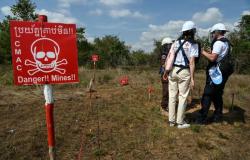Religiously motivated hate crimes
Religiously motivated hate crimes include punishable acts committed on the basis of prejudice, hatred or hostility towards a person or group because of their religion or beliefs. This includes discrimination or attacks against people wearing certain clothing, such as a yarmulke or headscarf. This may include physical violence, damage to property, threats or verbal attacks.
Racially motivated hate crimes
Racially motivated hate crimes are based on prejudice against skin color, external appearance, language, ethnic, migratory or cultural origin. This may include physical violence, damage to property, threats or verbal attacks.
For more information and definitions: Legal guide on racial discrimination: Definitions (admin.ch)
Queerphobic hate crimes
Anti-queer hate crimes are based on prejudice, hatred or hostility towards a person or group of people, because they are lesbian, gay, bisexual, trans, asexual, aromantic, non-binary or intersex. This may include physical violence, damage to property, threats or verbal attacks.
Extremism and radicalization
Extremism is defined as being willing to radically change a situation, using violence if necessary, to establish an absolute ideology based on political or religious beliefs. Radicalization is a process by which a person adopts ever more extreme positions on political, social or religious levels, which can go as far as resorting to extreme violence to achieve their goals. The more the individual expresses their radical or extremist beliefs and acts accordingly, the more likely they are to harm property protected by criminal law. Here too, we can think of a sentence for hate crimes under art. 261bis CP.
If you should notice signs pointing to possible radicalization or extremism, you can contact the police directly or the specialized Radicalization and violence prevention department of the city of Bern.
Additional sources and links





